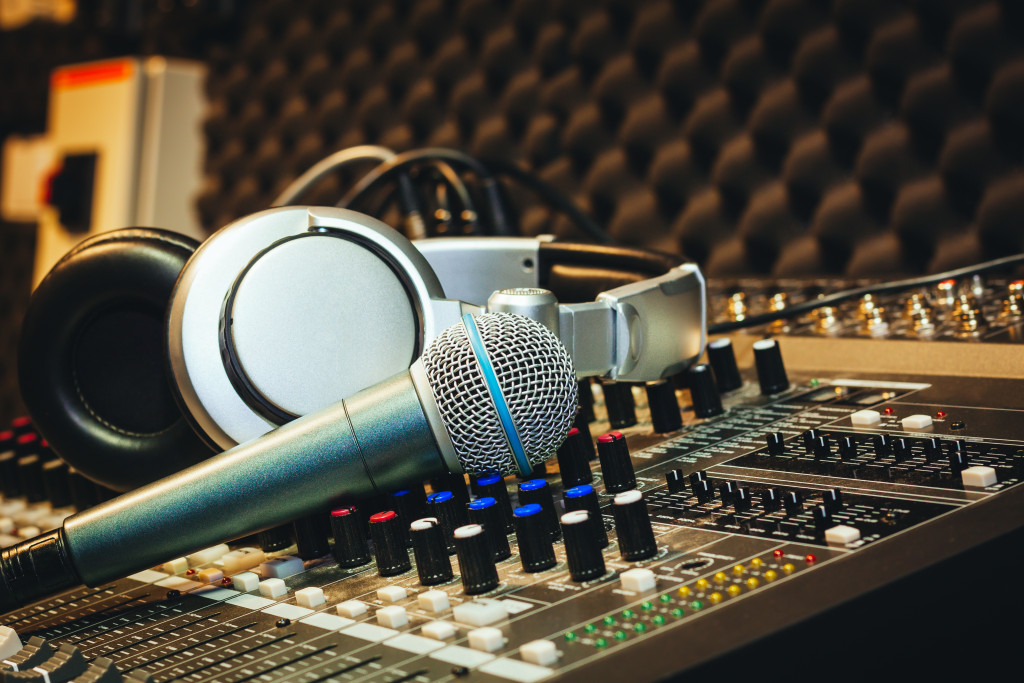Disclaimer: This website provides health information for educational purposes only and is not a substitute for professional medical advice, diagnosis, or treatment. Always seek the guidance of a qualified healthcare provider with any questions you may have.
The pandemic has affected many industries. In fact, multiple businesses have had to completely halt their operations because they reached the point of no recovery. The music industry is one industry that has been hit by the pandemic hard. Things like lockdowns and state restrictions have put venues, promoters, touring bands, and more in crisis.
How the Pandemic Has Affected Music Businesses
To better understand how the pandemic has affected music businesses, let us first analyze the business model of the music industry:
The overall worth of the music industry is estimated to be more than $50 billion. It has two main income streams. The first income stream is recorded music. It combines profit from digital downloads, streaming, physical sales, and synchronization revenues such as licensing of music for games, movies, advertising, and TV. On the other hand, live music makes up over half of the total revenue. It is mainly derived from ticket sales of live performances.
Given this business model, three aspects of the music industry have been heavily affected by the Coronavirus pandemic. These three aspects are as follows:
Sales
During the onslaught of the pandemic, physical sales, representing a quarter of the profits generated from recorded music, went down by 27.6%. The decrease is a result of the closure of retail stores. Digital sales, on the other hand, have plummeted by about 12.4%.
Listener Behavior
Studies also show that the music consumption behavior of people has drastically changed during the pandemic. In China, Tencent Music Entertainment or TME reported that more people use their home applications and smart devices to listen to music.
The famous Spotify streaming application noted an increase of subscribers during the first quarter of this year, with most listeners tuning in to relaxing genres. It might be because people are looking to music for stress relief from the pandemic.
Streaming
Despite the increase in Spotify subscribers, there has been a drop in music streaming by almost 8%. The reason may be connected to a change in focus, with people switched from leisure streams to news media. Aside from that, there are also fewer commuters. Gyms were also forced to shut down, which in turn, affected music consumption.
Advertising Spending
The music industry is also affected by the reduction in advertising spending happening worldwide. The Interactive Advertising Bureau recently surveyed media advertising. According to their findings, a quarter of media buyers and brands delayed all advertising for the first half of 2020. This reduction affected ad-supported music channels, the total industry revenue, and the individual income of artists. Even Spotify announced that it didn’t reach its first-quarter advertising targets because of the decrease in ad budgets.
Distribution
The music industry’s distribution has also been dramatically affected because of the inability to use tours to promote new albums. Live music practically ceased to operate during the Coronavirus pandemic.
As long as bans on large gatherings stay in place, live performances will continue to generate almost zero revenue, cutting the music industry’s revenue by 50%. Aside from that, ticket and merchandise sales are also affected by the six long months of lockdown. The estimated casualty is more than $10 Billion in sponsorships.
Adapting to the New Normal in the Music Industry

Virtual classes
Musicians who have their own studios are choosing to conduct virtual classes to generate extra income. This way, they can reach more people who want to learn how to play musical instruments more safely and conveniently. They offer virtual music lessons for people who wish to learn how to play the violin, guitar, and other musical instruments for an additional income source.
Use of Social Media
Since the ban on large gatherings is a part of State restrictions to combat COVID-19, musicians and artists found a way to monetize their music by utilizing social media. Facebook Live, Instagram Live, and other streaming platforms have become a substitute for live performances and music tours. Although there will be fewer fans and artist physical interaction, there will be more chances of interacting online.
Digital Albums
Digital consumption is on the rise as there is a lesser risk of infection. Thus, musicians and artists are producing more digital copies of their newly-released albums instead of tangible ones.
Online Sales of Merchandise
Merchandise from fan-favorite artists is still in demand. Instead of physical selling during live tours, online selling is the new avenue for fans to get their memorabilia. This is good news, as e-commerce is more hassle-free and safer than physical selling.
Something to Ponder On
The Coronavirus pandemic has brought a lot of casualties—even big businesses could not escape its implications. Some survived, while others didn’t. If you want your business to thrive, you must make changes to adapt to the new normal. Luckily, the music industry is continuously discovering new business models amid the pandemic.




